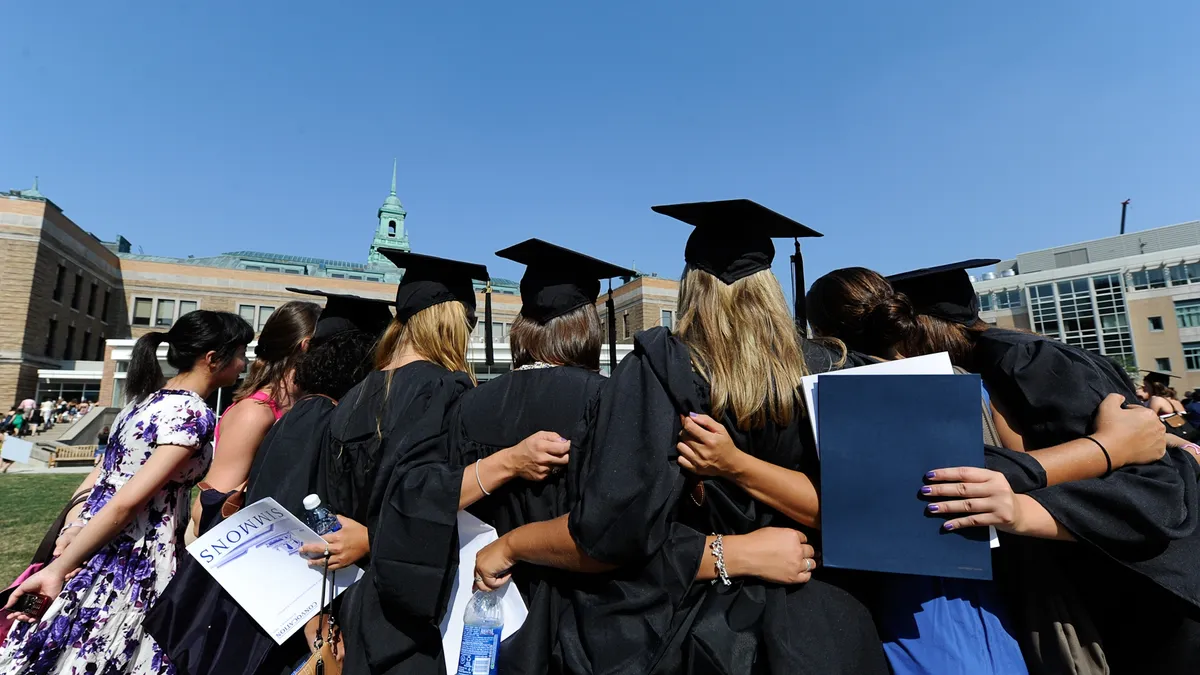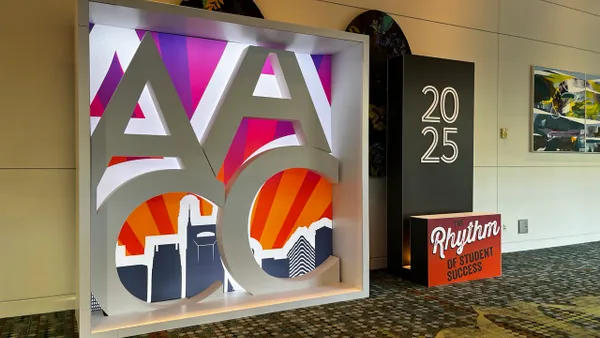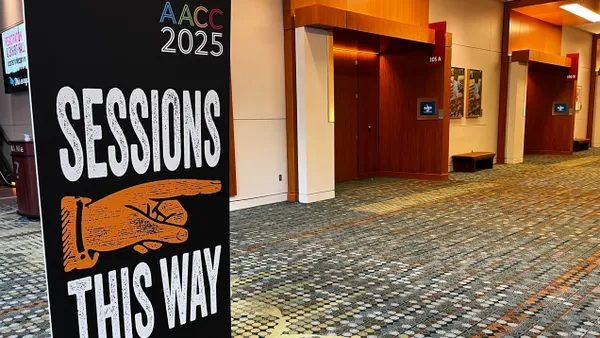Dive Brief:
-
The share of U.S. adults aged 25 and older with at least a bachelor's degree jumped nearly 17% over a 15-year period, according to new data from the U.S. Census Bureau.
-
About 32% of that population earned at least a bachelor's degree by the years 2015-19, up from around 28% in the years 2005-09. The data looks at the change over three five-year periods.
-
The data measures degree attainment prior to the coronavirus pandemic. College enrollment was generally down across the sector this fall, though more so at two-year schools.
Dive Insight:
The report notes that racial groups with "relatively low levels of bachelor's degree attainment" in 2005-09 experienced big growth in degree attainment during the decade and a half studied.
Survey respondents who identified as exclusively Black, Native Hawaiian and other Pacific Islander, or "some other race," increased their degree attainment by 20% or more over the 15 years.
Hispanic or Latino degree-holders experienced an even bigger increase. The share of those with at least a bachelor's grew by about 30%.
However, equity gaps persist. The share of White, non-Hispanic degree-holders was nearly 36% in 2015-19, compared to 16% among Hispanic or Latino populations.
Asian adults maintained the highest share of those with a degree, from nearly 50% in 2005-09 to more than 54% in 2015-19.

More recent data from the National Student Clearinghouse Research Center shows the number of first-time bachelor's degree earners grew about 2% in the last academic year, though only among traditional-age college students. The overall number of undergraduates who got a credential — including associate degrees and certificates — remained level.
Total undergraduate enrollment fell this fall by nearly 4% year over year, according to the research center. However, the losses were deepest at community colleges, whose enrollment dropped by more than 10%. Only public and private for-profit four-year colleges saw increases — of 0.2% and 5.3%, respectively.















